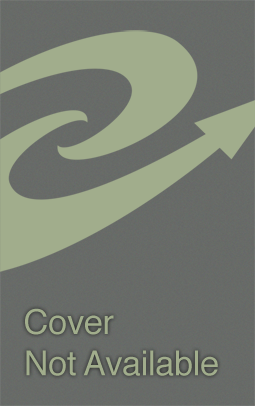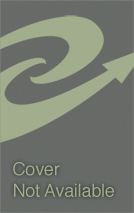
How to be a Scientist
by Steve Mould
This title was previously available on NetGalley and is now archived.
Send NetGalley books directly to your Kindle or Kindle app
1
To read on a Kindle or Kindle app, please add kindle@netgalley.com as an approved email address to receive files in your Amazon account. Click here for step-by-step instructions.
2
Also find your Kindle email address within your Amazon account, and enter it here.
Pub Date May 09 2017 | Archive Date May 09 2018
DK | DK Children
Description
Learn how to think like a scientist, look at the world in a brand-new way and have tons of fun with science comedian Steve Mould's bold and playful kids science book.
Supporting STEM and STEAM education initiatives, How to be a Scientist will inspire kids to ask questions, do activities, think creatively, and discover amazing fun facts!
A firm favorite in classrooms and homes alike, this science book for kids has earned itself a permanent spot on many family bookshelves. With more than 40 fun questions, experiments, games, and real-life scenarios that make scientific concepts fun and relevant, it's not hard to see why!
Simple activities with undetermined answers encourage curious young readers to find new ways to test ideas. The stories of the great scientists and their discoveries (and failures) are told in an entertaining way to provide even further inspiration for budding young scientists.
This educational book has the amazing ability to cover a wide range of ages, so if your children have an age gap this is a fantastic way to get them to engage with each other in a fun and educational way. It is informative, colorful, well written and draws you into its pages with an insatiable appetite for the simpler facts of science.
Most of the home science experiments for kids are easy to do with items most people already have around the house, making it super easy to go from idea to execution.
Explore, Investigate And Test Your Ideas!
Discover the skills it takes to become a scientist.
Being a scientist isn't just about wearing a white coat and doing experiments in a lab. It's about exploring, investigating, testing and figuring out how things work. How To Be A Scientist is packed with fun activities and projects that let you answer lots of tricky questions and help to explain the world around you.
This kid’s educational book challenges children to think for themselves and covers topics like:
- Weather, making a tornado, the water cycle, how to make a compass
- Energy, hot air balloons, electricity, Newton and Einstein
- The solar system, making a sundial, creating your own sunrise, phases of the moon
How to be a Scientist (Careers for Kids) is one of four fantastic books in the How to… educational books series, including How To Be A Math Genius, How to Be Good at Math, and How to Make a Better World.
Official reviews include:
International Literacy Association's Children's Choices 2018 Reading List
"Readers will be inspired to learn more about how to think and act like these famous scientists while uncovering deep scientific knowledge they can apply through fun-filled science projects."
Minnesota Parent
"This mix of classic and unusual science anecdotes and experiments is just the thing for budding STEM/STEAM fans, including tips for learning how to think and act like a scientist with fun activities and simple scientific explanations of biology, anatomy, physics, astronomy, chemistry and more."
Marketing Plan
Marketing:
National consumer and educator advertising campaign
Summer of STEM activities and promotions
STEM outreach
Promotions at ALA Annual, ILA, and Maker Faires
Academic and influencer mailing
E-Newsletter feature
Publicity:
National trade, education, and consumer press outreach
Author interviews and event appearances
Educational and consumer awards nominee
Available Editions
| EDITION | Other Format |
| ISBN | 9781465461216 |
| PRICE | $19.99 (USD) |
| PAGES | 144 |
Featured Reviews
 Nadine B, Librarian
Nadine B, Librarian
As always DK excels in their graphic interface in this book. Various branches of science are introduced with simple but effective experiments- most just 2 or 3 steps. Good brief biographical details of famous scientists complete the sections. Will be a hit in science classrooms in lower primary.
DK continually creates outstanding informative books for readers, and How to Be a Scientist is one of the best yet. There is so much to love about this book and it all begins with the bright cover that instantly makes you interested in what other exciting things may be in the book.
With STEM (Science, Technology, Engineering and Maths) being focused on in education and library programs to increase interest in scientific fields, this book is a perfect read for children and teens. I also believe this would be a good book to do work through together as a parent and child.
The How the Book Works page introduces the reader to the book and gives them a thorough understanding of the awesome activities, the photography guides, safety first guides, information on scientists, the science behind each project explained, and hints for new ways to test what has been learnt for each experiment. I find this page is useful to the reader as they can confidently proceed with the experiments and revisit this page if they are confused what each section refers to.
Most of the experiments are using items that the reader will be able to find at home such as sponges, eggs, fruit, straws, icy pole sticks and ice. I like that the experiments are created out of everyday items because this makes the book accessible to all which I find most important when it comes to reading, learning and education. Each page has a lot of information but the they don’t feel overcrowded and the experiments are easy to follow. Each page pops with colour, but has the subtle white background so as not to overwhelm the reader.
I highly recommend this book because there is so much to discover and will get your child thinking creatively. My hope is that this book will not only fun but also a wonderful learning experience, just as it has been for me.
 Jennifer M, Educator
Jennifer M, Educator
Right off the bat, after a quick picture walk, I know this book will be a blast - the brightly colored photographs, pictures and diagrams used in interesting and varying layouts will pull in children and their parents, and excite them about science!
My second reading was more thorough, and I took some notes along the way: this book will appeal to a wide audience of readers, from preschoolers through middle elementary and will guide their questions and even offer answers to questions they might not have thought to ask! Listing facts about famous scientists alongside the experiments rounds out the learning experience as well.
I have used many of these experiments in my preschool science curriculum, but each one in How To Be A Scientist had ways to make me a better teacher. I'm SERIOUSLY excited to add a copy of this book to both my personal and professional libraries! Thank you, Net Galley, for the opportunity to preview it and provide feedback.
Readers who liked this book also liked:
Vincent B. "Chip" LoCoco
Historical Fiction, Horror, Mystery & Thrillers
Nigel Henbest; Simon Brew; Sarah Tomley; Ken Okona-Mensah; Tom Parfitt; Trevor Davies; Chas Newkey-Burden
Entertainment & Pop Culture, Humor & Satire, Nonfiction (Adult)




